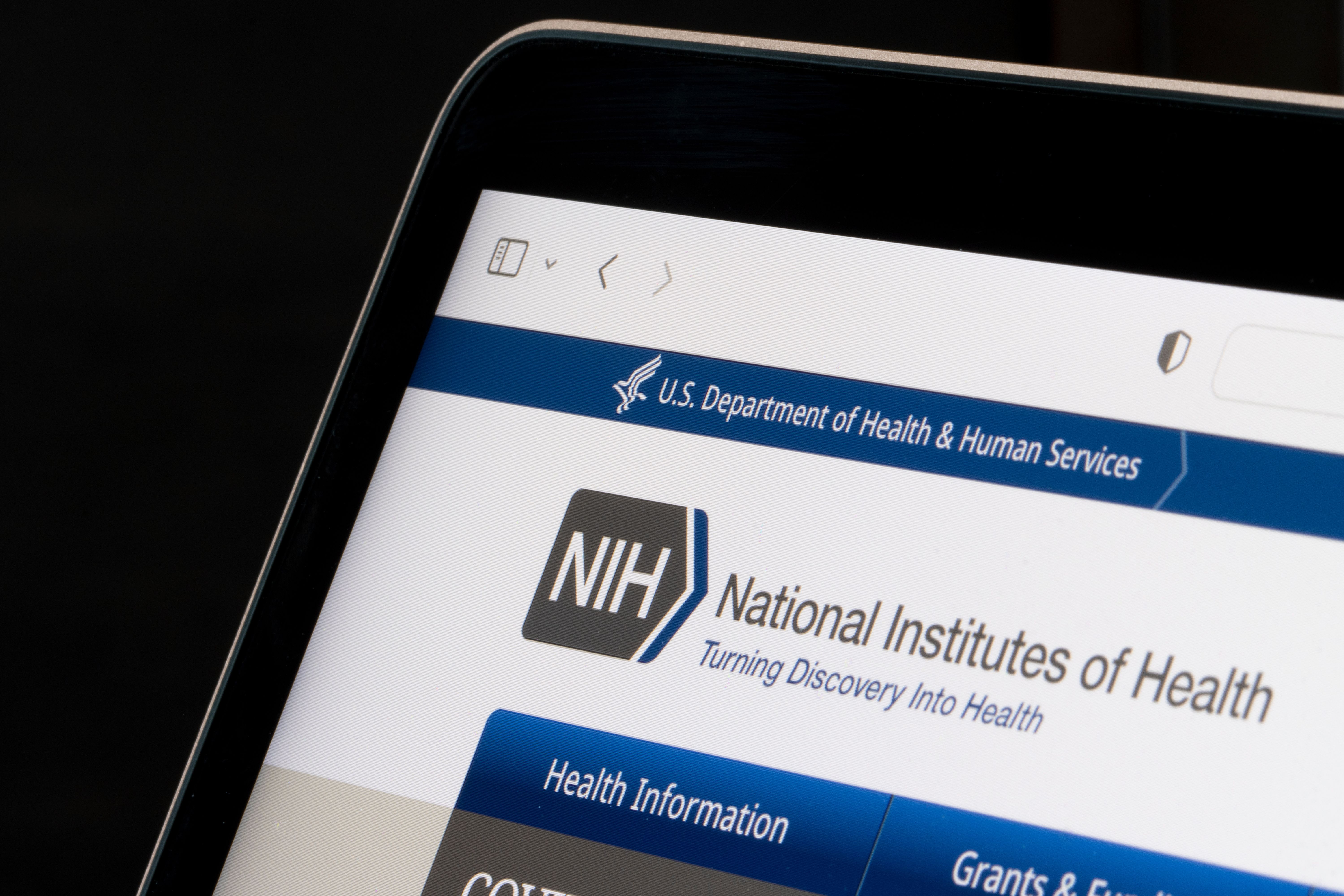- Center on Health Equity & Access
- Clinical
- Health Care Cost
- Health Care Delivery
- Insurance
- Policy
- Technology
- Value-Based Care
NIH Grants Terminated Amid Trump Administration, Raising Concerns for US Research, Minority Health Disparities
The Trump administration's termination of 694 NIH grants totaled $1.81 billion by April 2025, generating significant uncertainty and concern regarding the future of US health research, especially for minority populations.
The Trump administration's termination of 694 NIH grants totaled $1.81 billion by April 2025, which has generated significant uncertainty and concern regarding the future of US health research, especially for minority populations. | Image Credit: Tada Images- stock.adobe.com

NIH grant terminations that cut topics not aligned with agency priorities have caused uncertainty about their implications for the US health research enterprise, according to a research letter published in JAMA.1
Researchers utilized the Tracking Accountability in Government Grants System database to determine the number and corresponding funding amounts of terminated NIH grants. They identified all HHS-awarded grants terminated since the state of the current Trump administration.
HHS secretary, Robert F. Kennedy Jr, announced in March that an anticipated 10,000 termination notices would hit the industry.2 The administration began eliminating 1000 NIH employees, in addition to significant budget cuts, with about 1200 jobs expected to be next, targeting scientists, communications, IT, and support staff. Former NIH leaders have expressed outrage over the cuts, calling them unprecedented and alarming.
Data from February 28, 2025, to April 8, 2025, show that 694 NIH grants were terminated across 24 of the 26 institutions and centers that administered active NIH grants.1 Grant funding totaling $1.81 billion was terminated, 30% ($544,024,077) was unexpected at the time of termination. Among 210 recipients, the highest number of grant terminations included:
- Columbia University (n = 157)
- Johns Hopkins University (n = 19)
- Yale University (n = 14)
- Emory University (n = 14)
- University of Michigan (n = 14)
- Northwestern University (n = 13)
- University of California San Francisco (n = 13)
- University of Miami (n = 12)
- University of Pittsburgh (n = 10)
- University of Maryland (n = 10)
The National Institute of Mental Health and the National Institute on Minority Health and Health Disparities (NIMHD) administered the largest number of terminated grants (n = 128; n = 77, respectively). The National Institute of Allergy and Infectious Diseases ($505,968,126) and the NIMHD ($223,566,041) accounted for the highest overall dollar amount of terminated grant funding.
The NIMHD accounted for the greatest proportion of terminated grants relative to previously active grants and the highest proportion of terminated funding relative to previously active funding. Out of 694 terminated grants, 57.6% were research project grants, 20% were early career grants, 16% were other grants, and 6.3% were center grants.
Shortly after President Donald J. Trump issued these mandates, NIH employees expressed their concerns in a letter to Republican senators and 22 states filed a joint lawsuit against HHS to challenge the revocation of the funds, along with the decision of moving to freeze grant approvals from the NIH.3
“Every dollar of NIH funding we spend generates about 2.4 to 2.5 dollars of return economic activity,” said E. John Wherry, PhD, chair of the Department of Systems Pharmacology & Translational Therapeutics at Penn Medicine, director of the Institute for Immunology and Immune Health. “The $47 billion of NIH funding supports a $1.5 trillion pharmaceutical industry that helps as our partner in generating new drugs and new ways to treat patients.”4
The administration’s decision to target federally funded grants inflicts a heavy toll on public health, especially for minority populations.5 These policies are expected to have severe impacts on mental and physical health while exacerbating health care disparities, straining resources, and imposing significant financial burdens on the US health care system.
The inability to systematically categorize topic areas of terminated grants and the lack of data on the specific reasons for grant terminations may have limited the outcome of the review study.1 The findings reflect the cuts disproportionately impacted the NIMHD and affected both public and private recipient institutions across the country.
“Ongoing monitoring and data transparency will be critical for understanding the impact of grant terminations on the US health research enterprise,” study authors concluded.
References
1. Liu M, Kadakia KT, Patel VR, Krumholz HM. Characterization of research grant terminations at the National Institutes of Health. JAMA. Published online May 08, 2025. doi:10.1001/jama.2025.7707
2. Grossi G. Robert F. Kennedy Jr faces senate inquiry over deep cuts to HHS impacting FDA, CDC, NIH, CMS. AJMC®. April 2, 2025. Accessed May 8, 2025. https://www.ajmc.com/view/robert-f-kennedy-jr-faces-senate-inquiry-over-deep-cuts-to-hhs-impacting-fda-cdc-nih-cms
3. Grossi G. HHS cuts funding for NIH-based women’s health initiative threatening decades-long study. AJMC. April 23, 2025. Accessed May 8, 2025. https://www.ajmc.com/view/hhs-cuts-funding-for-nih-based-women-s-health-initiative-threatening-decades-long-study
4. Caffrey M. AACR panelists call on scientists to stand up against cuts that threaten progress, patients, and future discoveries. AJMC. April 27, 2025. Accessed May 8, 2025. https://www.ajmc.com/view/aacr-panelists-call-on-scientists-to-stand-up-against-cuts-that-threaten-progress-patients-and-future-discoveries
5. Santoro C. American advocacy and action for minority health in 2025. AJMC. April 4, 2025. Accessed May 8, 2025. https://www.ajmc.com/view/advocacy-and-action-for-minority-health-in-america
